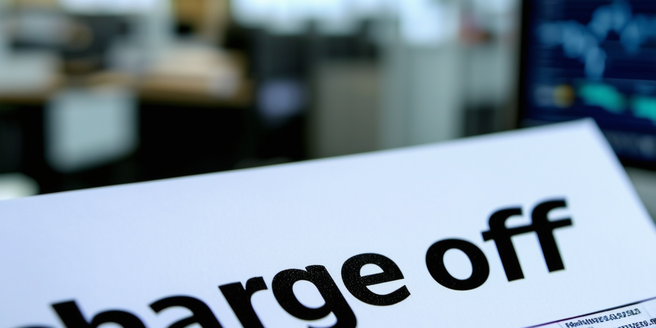What is a Charge-off?
A charge-off occurs when a creditor deems a debt uncollectible after a prolonged period of missed payments, usually 180 days. Although this step is commonly a last resort for creditors, it has significant repercussions for the debtor. The creditor writes off the debt as a loss for tax purposes, but this doesn’t absolve the debtor from their obligation. In many cases, debtors should still consider making arrangements to settle their debt. In many cases, the creditor may also sell the debt to a collection agency. Charge-offs are typically reported to credit bureaus, severely impacting credit ratings and decreasing the likelihood of future credit approvals.
How Do Charge-offs Occur?
Charge-offs typically occur when a debtor fails to make required payments over a significant period, usually six months. This delinquency triggers the creditor to write off the debt, reporting it as a financial loss. Despite the charge-off, the debtor is still liable for the outstanding amount. Creditors often sell these debts to collection agencies, who will then pursue repayment aggressively. It’s important to understand your rights and obligations during this process. Additionally, speaking with a financial advisor might help in navigating these complex situations. However, negotiating with collection agencies can sometimes lead to a settlement for less than the full amount owed.
Effects of Charge-offs on Credit Scores
A charge-off has a severely negative impact on your credit score, often lowering it by 100 points or more. The presence of a charge-off on your credit report signals to future lenders that you are a high-risk borrower. Consequently, it can cause significant long-term financial challenges. In some cases, it could even result in job application rejections if employers conduct credit checks as part of their hiring process. It could also elevate your interest rates for existing credit lines. This blemish on your credit history can persist for up to seven years. This makes it exceedingly difficult to secure new lines of credit, secure loans, or even rent apartments, as landlords often check credit reports.
Legal Implications of Charge-offs
While a charge-off relieves a creditor from reporting the debt as an asset, the debtor still legally owes the amount. This status can impact the debtor’s credit score significantly. Additionally, lenders may be hesitant to approve new credit applications from individuals with charge-offs on their records. Collection agencies may pursue legal action to recover the debt, leading to potential lawsuits and wage garnishments. Even after a charge-off, the debt can be sold to third-party collectors. It’s essential to understand that a charge-off does not mean forgiveness of the debt but rather a shift in the party attempting to collect it.
Strategies to Avoid Charge-offs
To avoid charge-offs, prioritize making at least the minimum payments on all debts. Ensuring timely payments is critical in maintaining a healthy credit score and financial stability. If financial difficulties arise, communicate proactively with creditors to negotiate repayment plans or temporary relief options. Reaching out early can increase the chances of creditors being accommodating to your situation, potentially providing options that can ease your financial burden. Additionally, setting up automatic payments and closely monitoring your budget can also help prevent missed payments and the subsequent risk of a charge-off. By automating your payments, you reduce the chances of forgetting due dates or missing payments due to oversight. Regularly reviewing your financial situation and adjusting your budget as needed can provide the necessary insight to keep your finances in order. This informed approach will help you stay on top of your financial obligations and prevent the negative consequences associated with charge-offs.
Recovering from a Charge-off
Recovering from a charge-off involves taking steps to settle the outstanding debt, either by paying it in full or negotiating a reduced amount with the creditor or collection agency. A charge-off can significantly impact your credit score, so addressing it promptly is crucial. Once the debt is dealt with, focus on rebuilding your credit by consistently paying all your bills on time, which is one of the most important factors in your credit score. Reducing existing debt through planned payments and responsible financial management will also help improve your credit standing. Using secured credit cards wisely can be very beneficial in demonstrating your ability to manage credit responsibly. Over time, following these actions and maintaining good financial habits can gradually help restore your credit score and even lead to an improved financial situation. Ensure you monitor your credit report regularly to check your progress and address any discrepancies or issues that may arise.


